From June. 27th to July. 3rd, 2021, students of the International Journalism M.A. Class of 2022 spent their days in Nujiang Lisu Autonomous Prefecture, Yunnan Province for a field research trip centered on rural revitalization and preservation of minority culture.
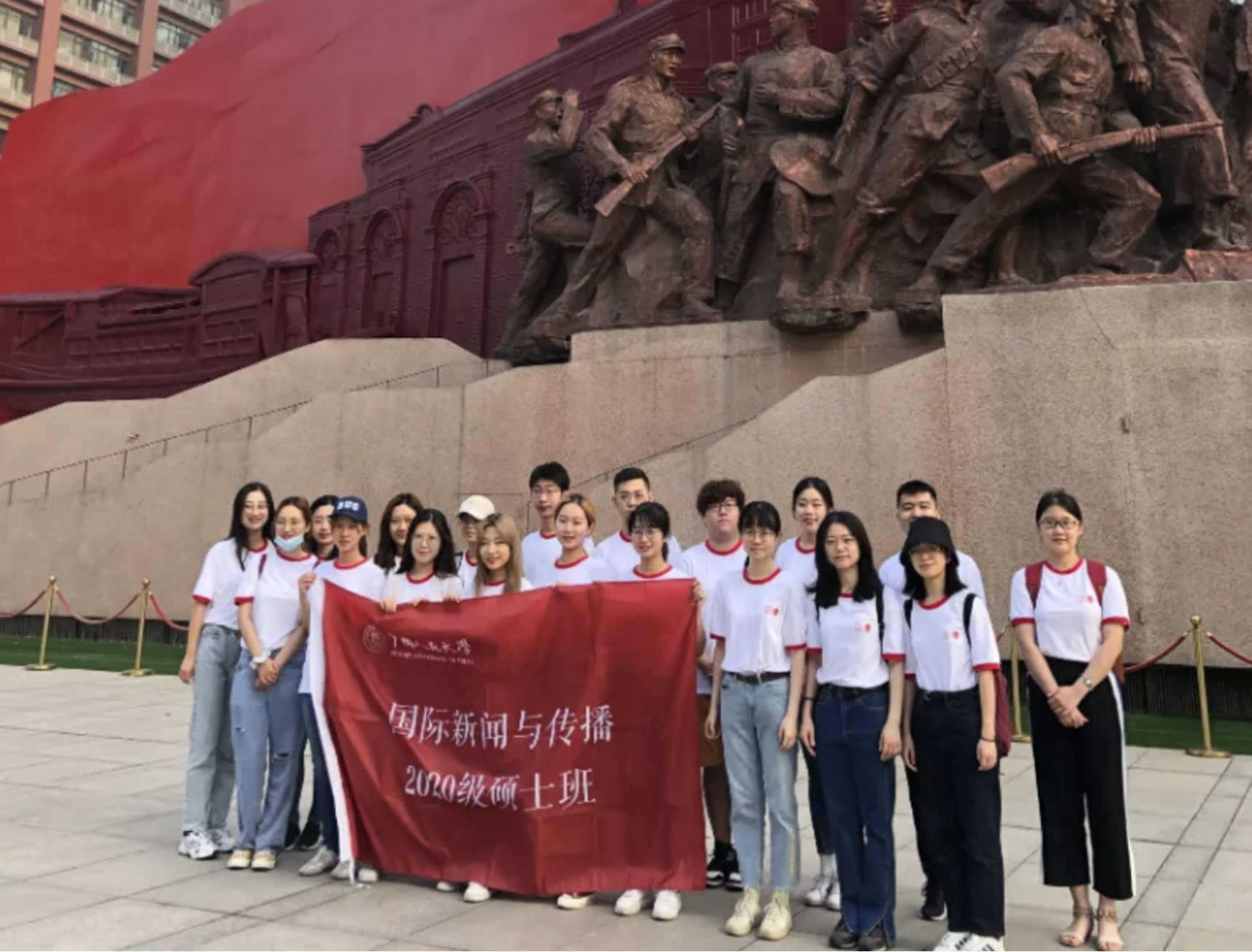
On July.27th, the delegation taking a group photo at Mingde Square in RUC before departure
Around the two main theme “culture” and “poverty alleviation”, the delegation of SJC visited workshops of intangible cultural heritage, places the poor relocated to and e-commerce centers in Lushui, Fugong County, and Lanping Bai and Pumi Autonomous County in order to know how local people got rid of poverty under the guidance of the government’s educational, industrial and ecological poverty alleviation measures.
Colorful minority culture
Populated by 22 nationalities, Nujiang Lisu Autonomous Prefecture is abundant in intangible cultural heritage. Therefore, the delegation focused their attention on minority culture in the research process.
On the first day, the delegation visited Da Nanmao Intangible Cultural Heritage Museum and Lu Zhangzhen Exhibition Hall of Arbor, listening traditional folk songs and learning how to play the lute of Lisu people. Music is so important to Lisu people that it can be seen everywhere in Lisu people’s life, from eulogizing motherland and the new society to marriage and funeral scenes, working time, and relaxing time when family members of Lisu people sit around a fire-pit
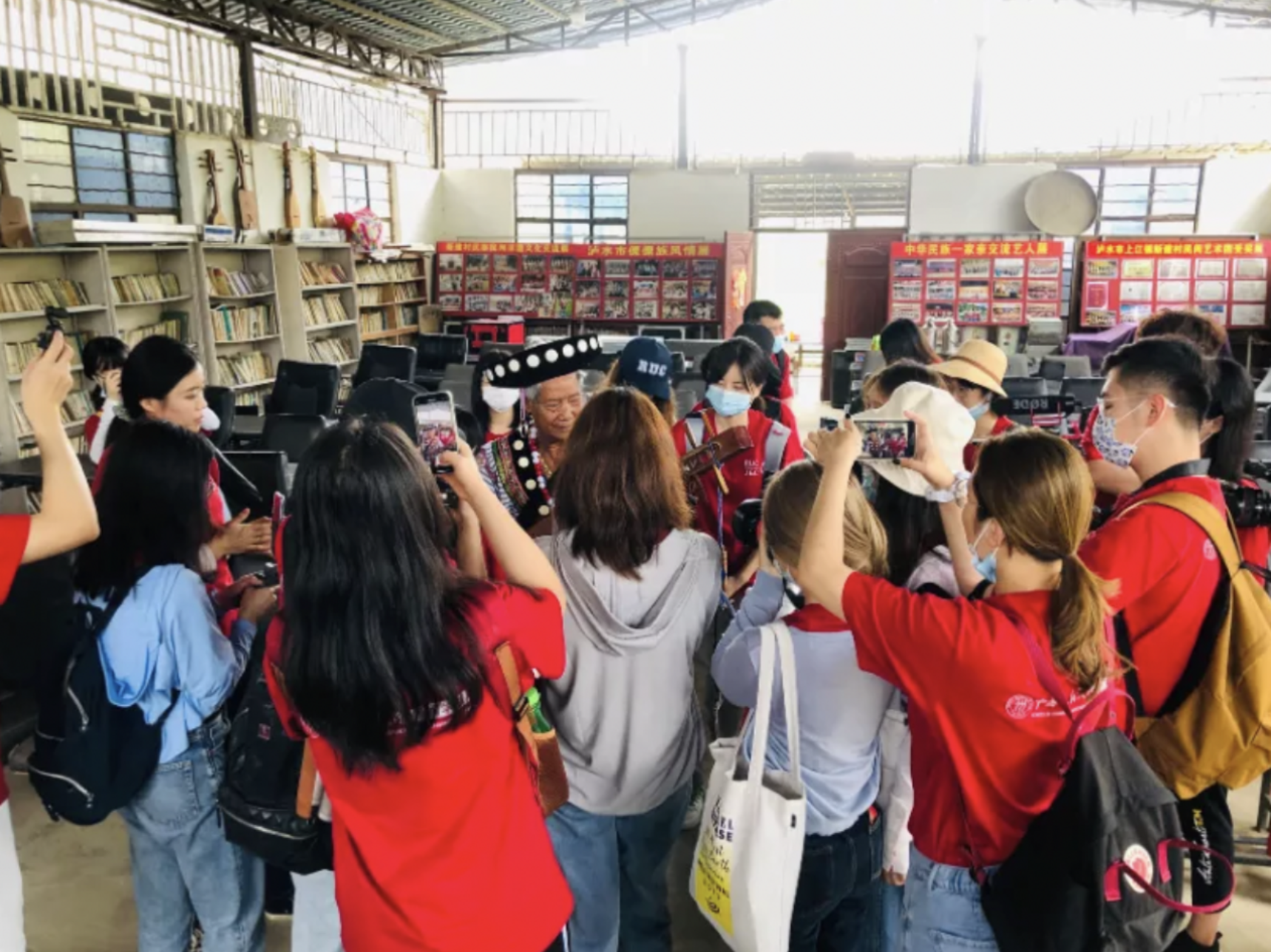
The delegation watching a play of traditional Lisu instrument and interviewing the representative successors for intangible cultural heritage
Vegetable oil extracted from Lacquer-based agroforestry and pilaf are special cuisine of Lisu people and Nu people. The delegation watched the process of the production of Qiyou Tea which is made of vegetable oil extracted from Lacquer-based agroforestry under the impact of Tibetan culture.
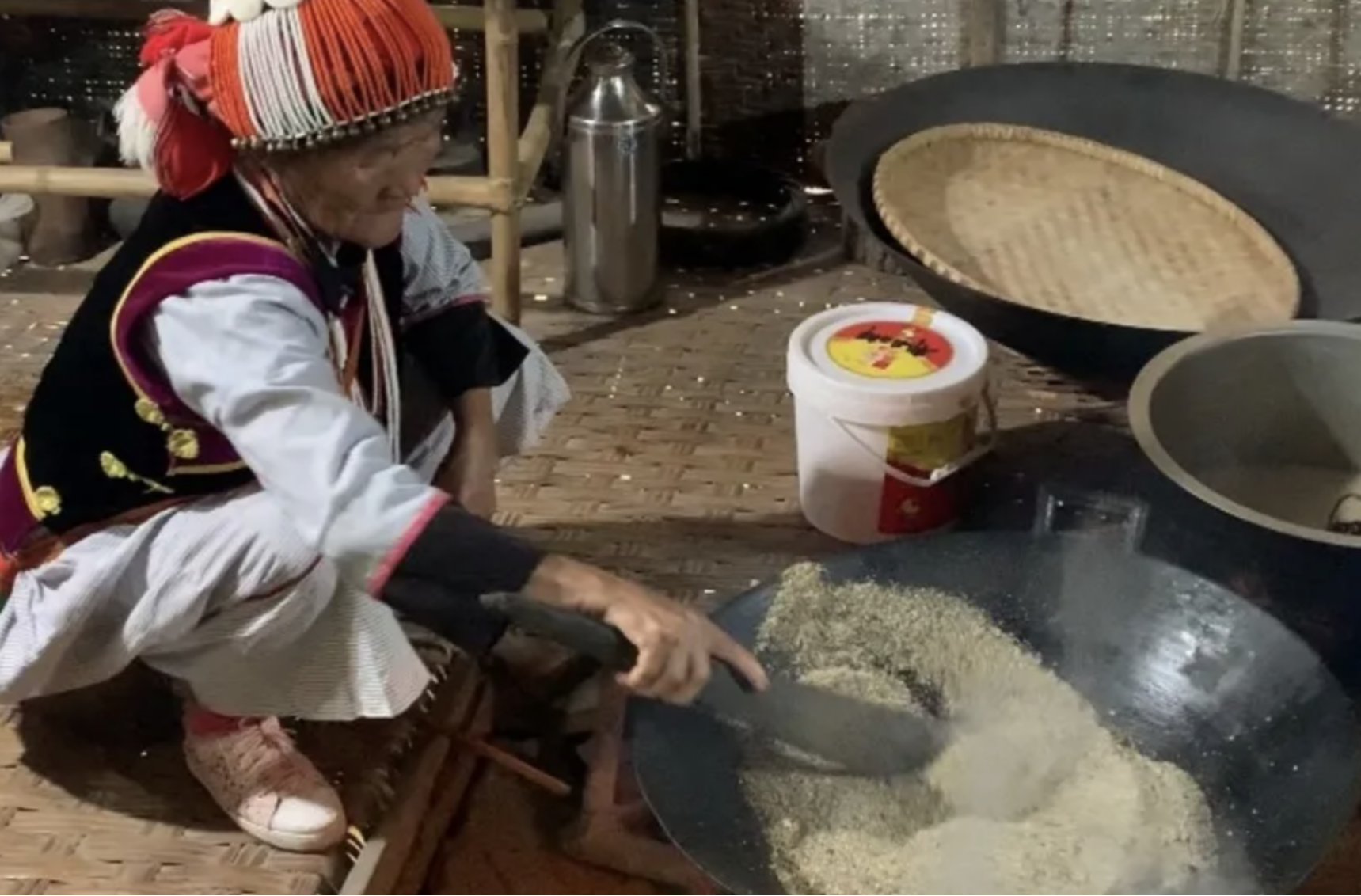
The production process of vegetable oil extracted from Lacquer-based agroforestry
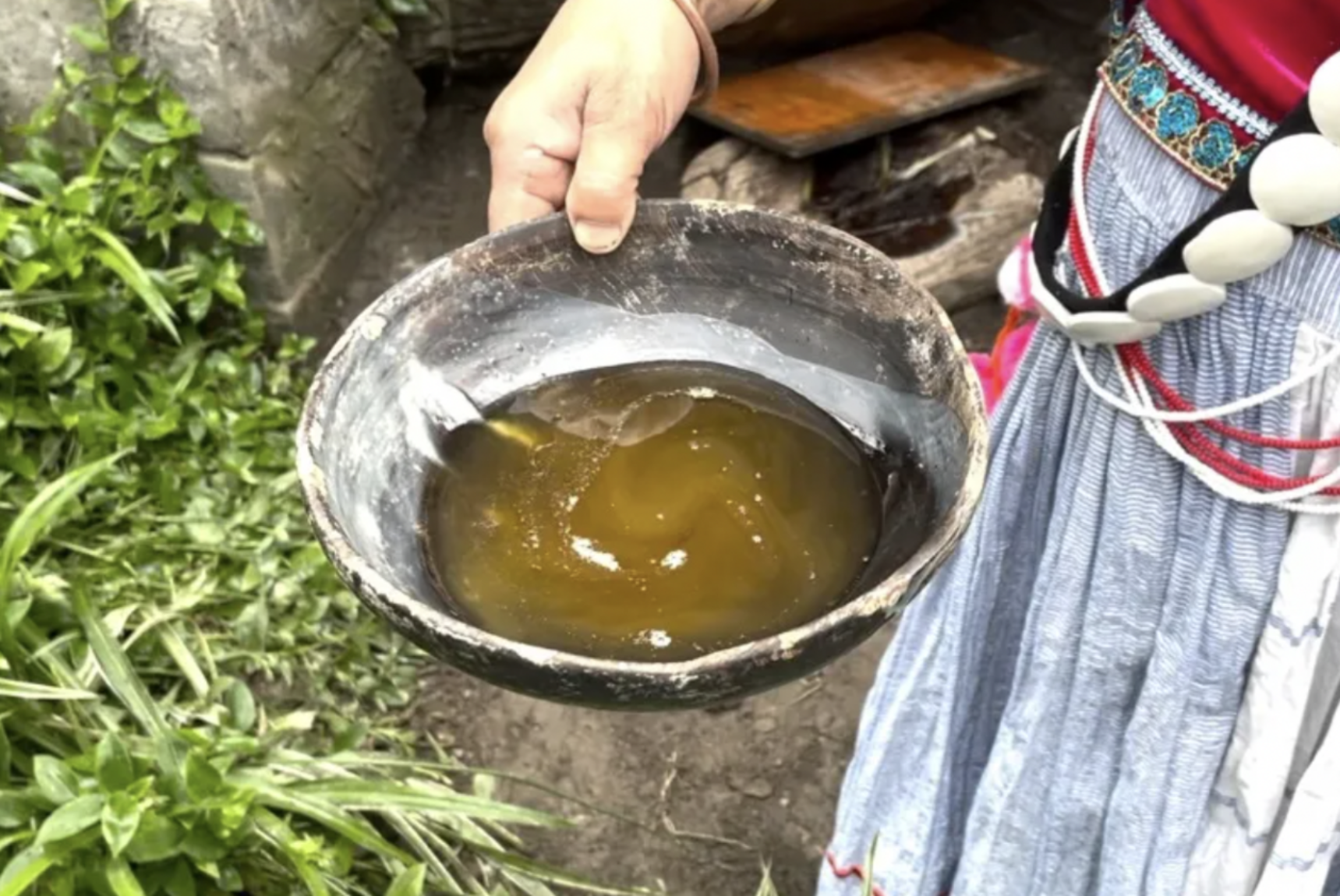
Newly-made vegetable oil extracted from Lacquer-based agroforestry
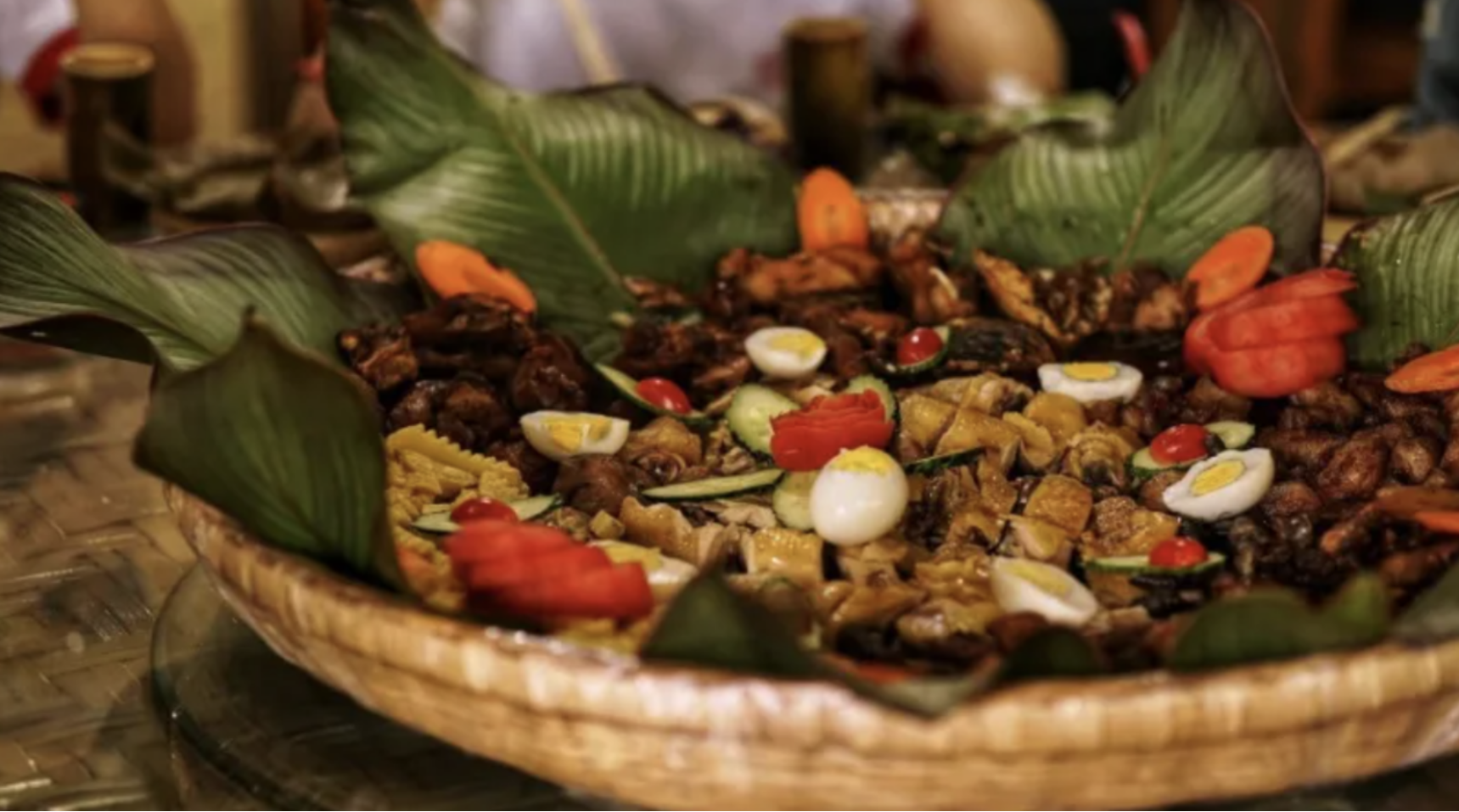
Lisu pilaf
In addition to cuisine, traditional costume is also an important part of the delegation’s survey which was centered on poverty alleviation. Ci Luhen, the legal representative of Zili Minority Costume & Crafts Production Company in Fugong County, hired local people and contributed to their getting rid of poverty. ‘Gufang Memory’ Workshop that employed local workers in Yong’an Community witnessed how Xiong Lanying and her daughter used modern technology to produce traditional costume and crafts in an innovative way.
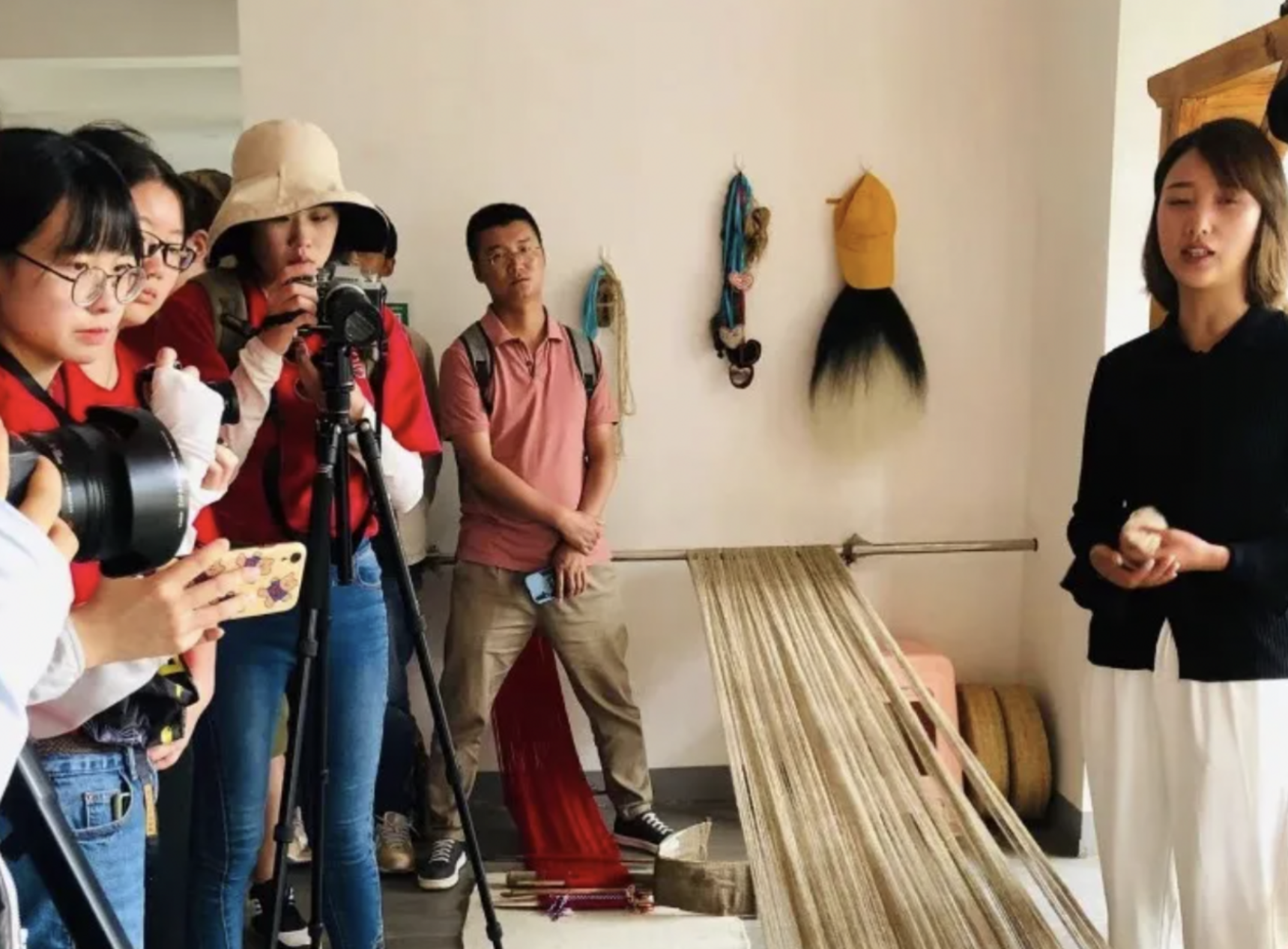
Shooting at the ‘Gufang Memory’ Workshop in Lanping County
Poverty alleviation measures
There are many key national-level poverty-stricken counties in Nujiang Lisu Autonomous Prefecture. Thus, the delegation also paid much attention to Nujiang’s poverty alleviation measures, including boosting the economy to provide more job opportunities, relocating poor people of inhospitable areas, and improving education in impoverished areas.
The delegation went to relocation places such as Ze Fu Community in Fugong County and Yong’an Community in Lanping County. Local administrative officials who were responsible for relocation introduced to the delegation that their goal was that rural poor people would be free from worries over food and clothing and have access to compulsory education, basic medical services and safe housing. In addition, they also took many measures to help the poor to adapt to new life after moving to hospitable areas. Students of SJC interviewed newly-moved-in residents who said that they were satisfied with their life in the new community.
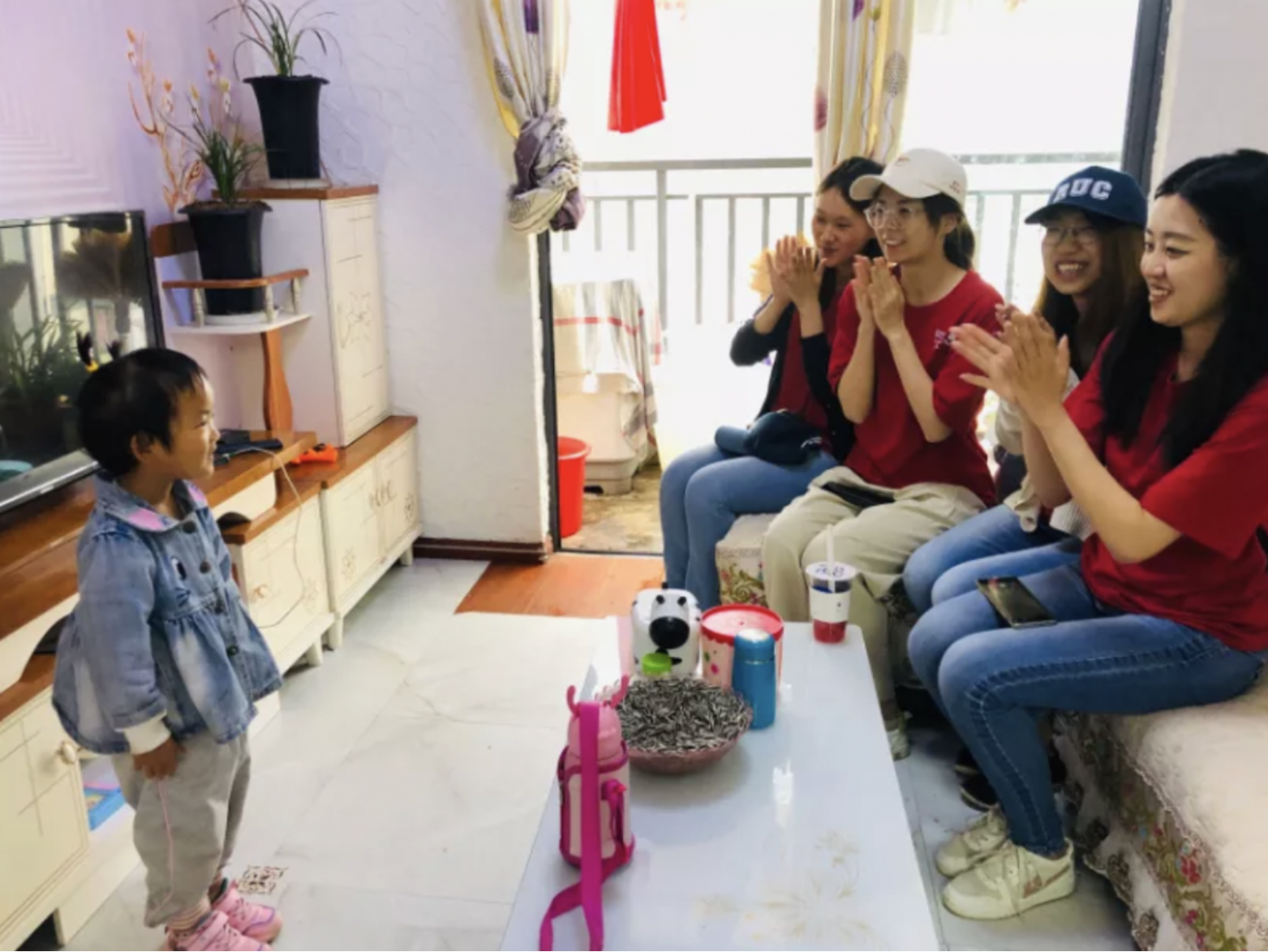
Household survey at Yong’an Community in Lanping County
How to provide more job opportunities to boost the economy is also investigated. The delegation visited a workshop of intangible cultural heritage in Aludi, Lumadeng Town of Fugong County, workshop belonged to Baichuan clothing company, grape base of Youchuang Industry Poverty Alleviation Company in Lanping County ,‘Gufang Memory’ Workshop stationed in Yong’an Community for poverty alleviation and found that with the help of local enterprises and government, the relocated people could be employed, strengthening their skills and getting a higher salary. They appreciated the help from the government and the party and expressed their good wishes for a better life in the future.
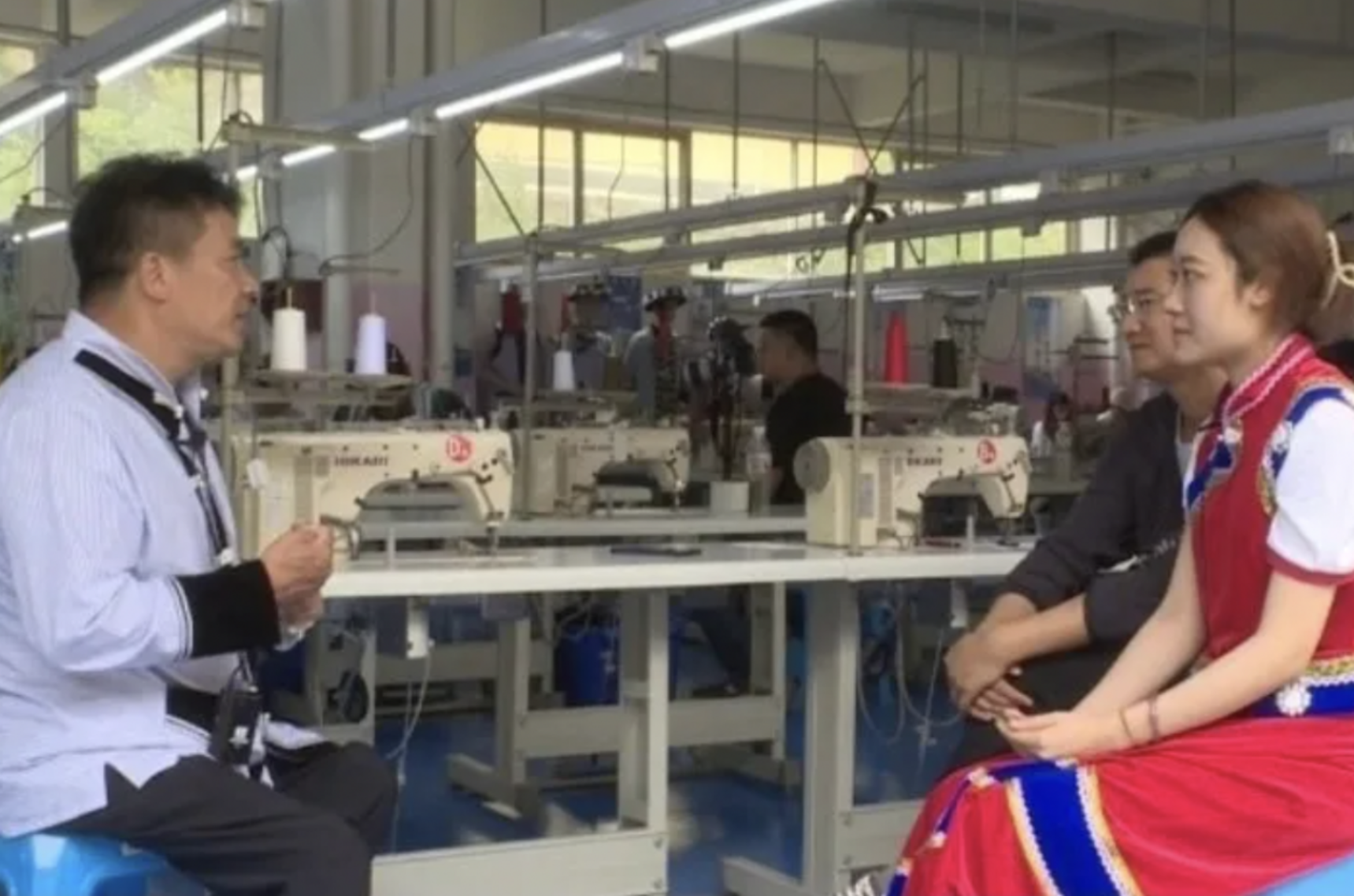
Interviewing Ci Luhen, the legal representative of a workshop of intangible cultural heritage
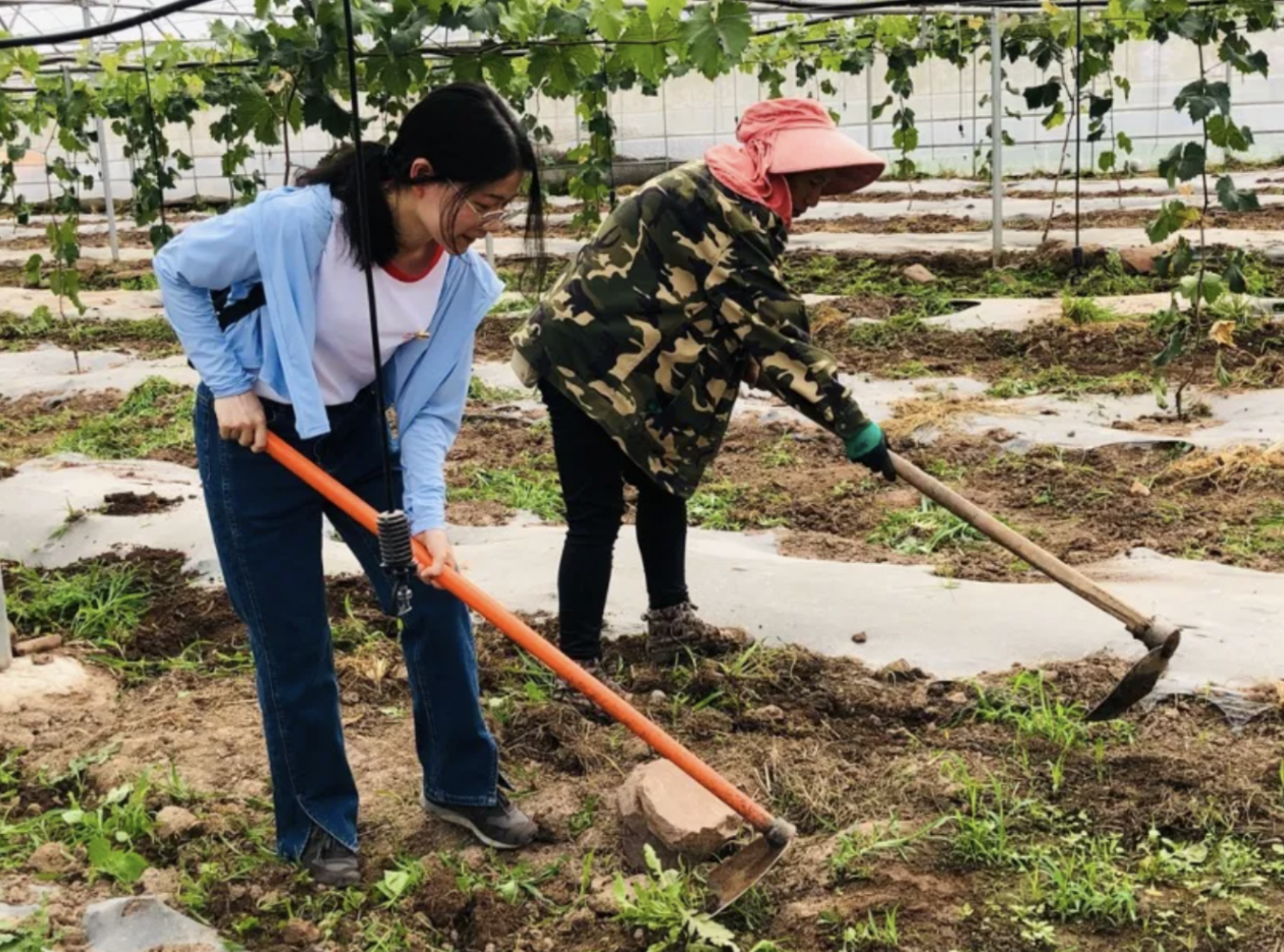
Farming at the grape base with villagers
The delegation also went to Qingmen Village Primary School in Jinding Town, Lanping County, in order to investigate how education in rural areas goes. The principal showed the delegation around and introduced the history, infrastructure and current conditions of the school. Students and teachers of SJC participated in the last Young Pioneer Day in this semester and danced with pupils there.
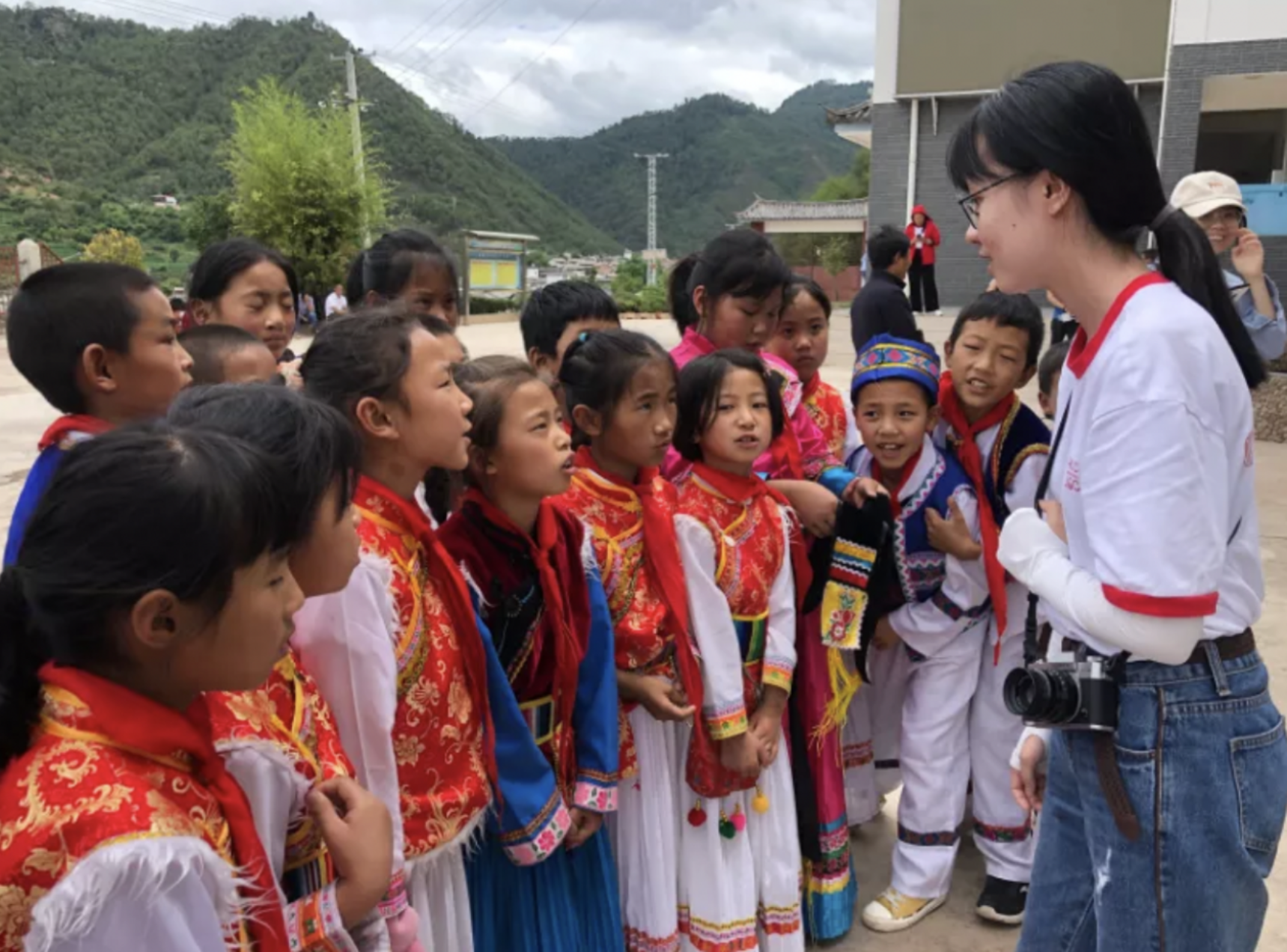
Investigating the education condition in Qingmen Village Primary School in Jinding Town, Lanping County
Furthermore, the delegation went to Minority Senior High School of Lanping County. Some students from SJC were surprised by modern teaching facilities in this poor county such as well-developed dormitory and playground. They interviewed 5 Grade 2 students about their study life, difficulties and dreams, and they were inspired by the unique experience of 5 students from RUC who volunteered to teach there
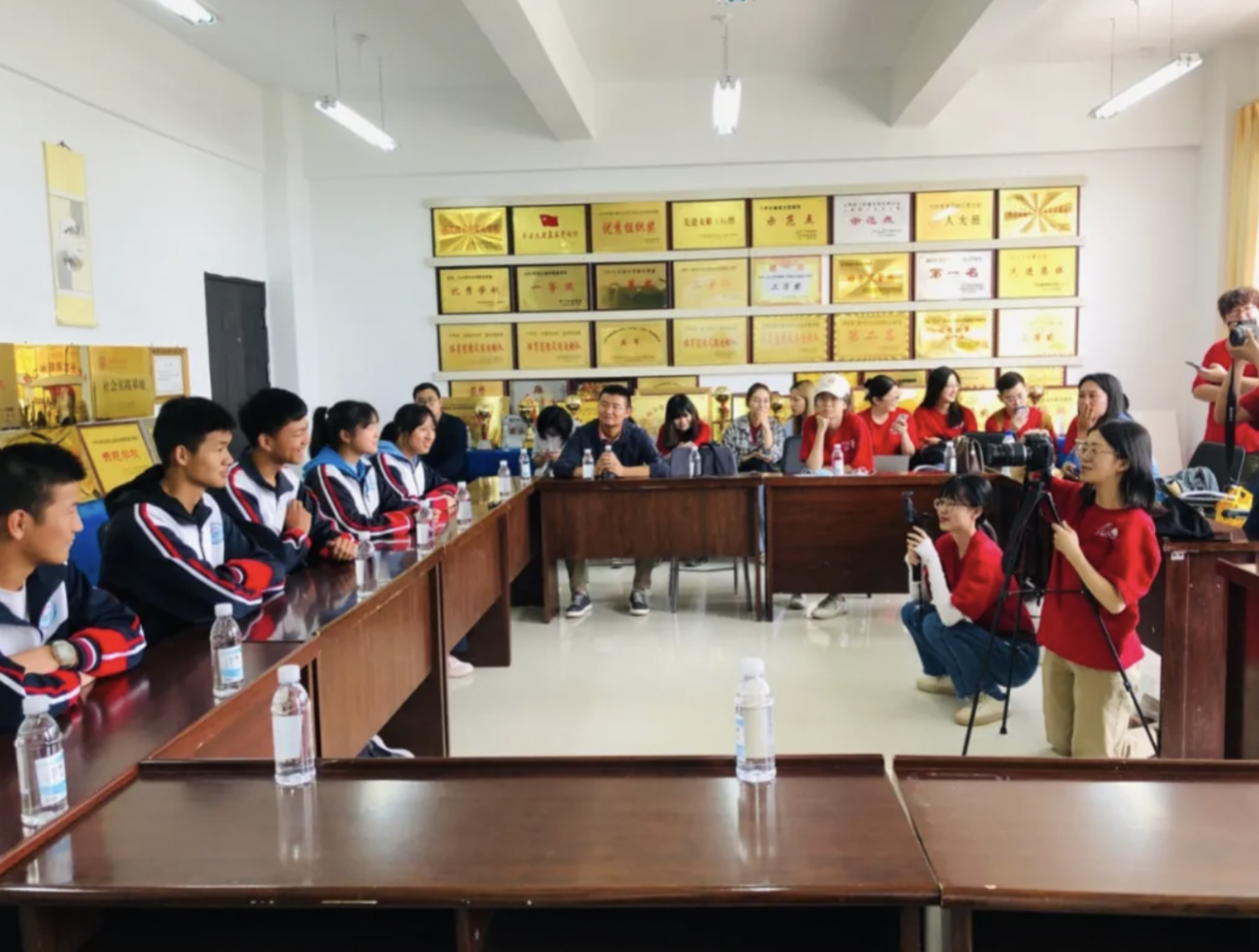
Interviewing students of Minority Senior High School of Lanping County
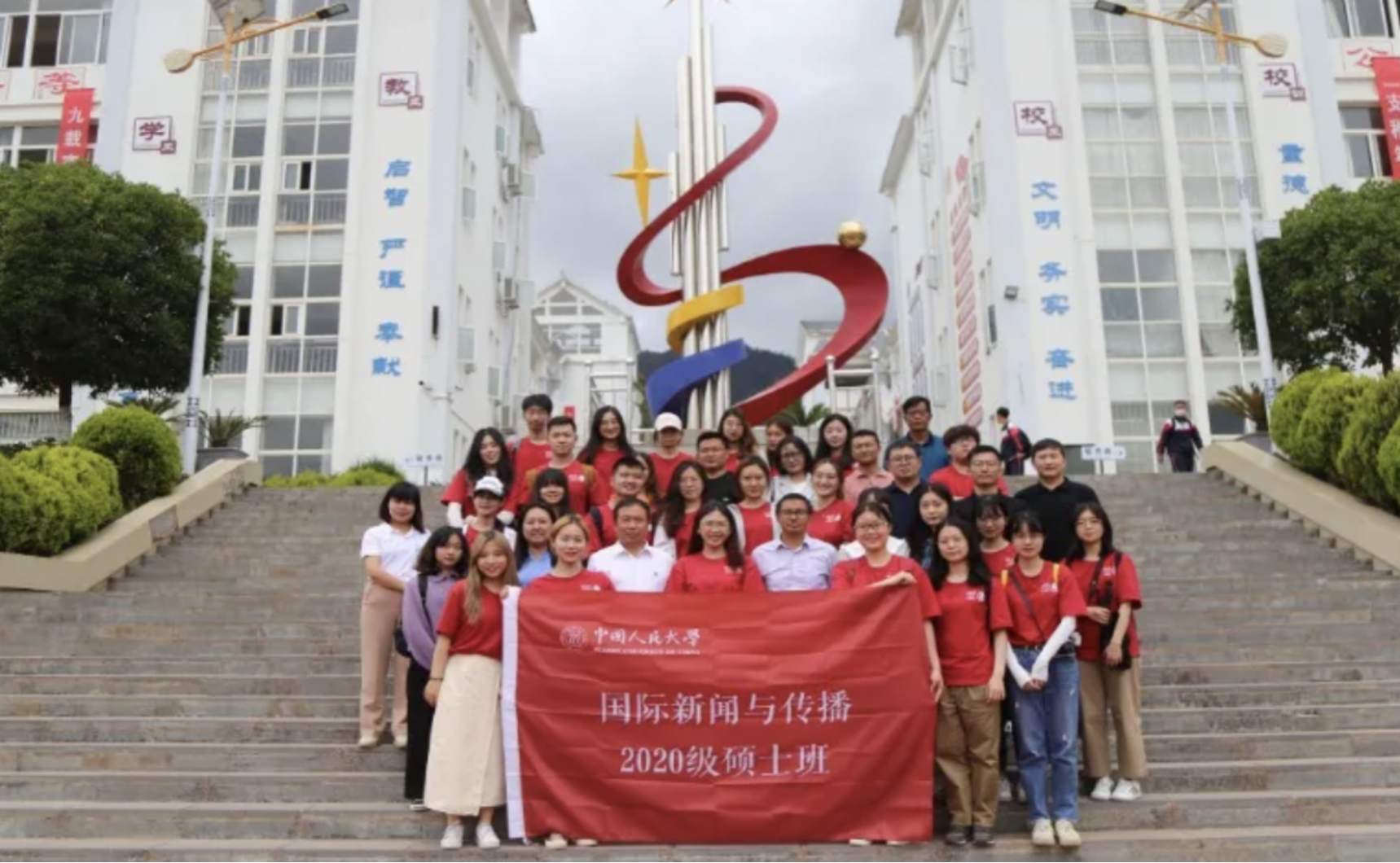
Group photo after the survey in Minority Senior High School of Lanping County
Gains from the trip
Students of the International Journalism M.A. Class of 2022 learned a lot from this field research trip and the following is what they said about this experience.
Guo Keshu said by going to the field instead of staying in the classroom, she was able to observe and explain what was happening in people’s real life in China. As a member of CPC, she would like to devote herself to the party’s noble cause.
Ruan Ziyan said this field research trip enabled her to see the real Yunnan Province. ‘The relocation of the poor, the protection of intangible cultural heritage, educational poverty alleviation…Abstract as these words sound, what I see behind these words are families that lead a better live, ethnic culture that have been preserved well and kids who are eager to go to see a better world. A journey of seven days is short, however, it provides me a chance to see a real corner of Yunnan Province at least.’
‘It’s said that China creates a world miracle in poverty reduction by lifting 98.99 million people out of poverty and it’s not just a number but about real people’s lives. Here in Yunnan Province, we are able to see how local people strove to improve their lives, how government policy helped the Pumi ethnic group with its textile industry, how the elderly passed on the craft from one generation to the next. Poverty alleviation is not an abstract concept; these stories and smiling faces incarnate it.’ Lu Junyu said.
“Only by going to the field, interviewing local people, and living with them, can we get a deeper understanding of abstract concepts like ‘national unity’ and ‘poverty alleviation’.” Wu Beibei said.
Rooted in China, going global. In this trip, students of the International Journalism M.A. Class of 2022 not only see how government policy was put into practice but also have a better understanding of ethnic culture. What they know about China’s national conditions will somehow contribute to their future career as international journalists.
Author: Zhong Xin
Editor: Jiang Jian
Tutored by: Sun Quan, Wu Yixiang
Translator: Yu Xiangjun
Proofreader: Huang Jing



